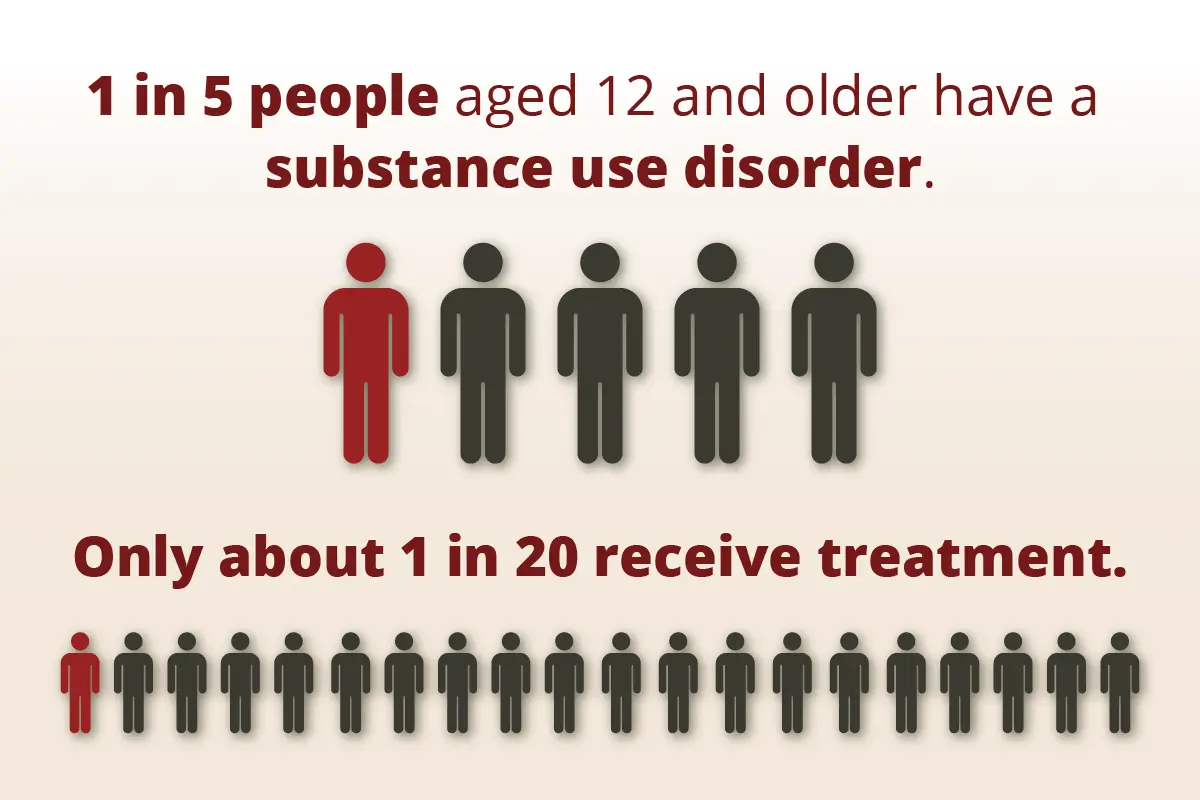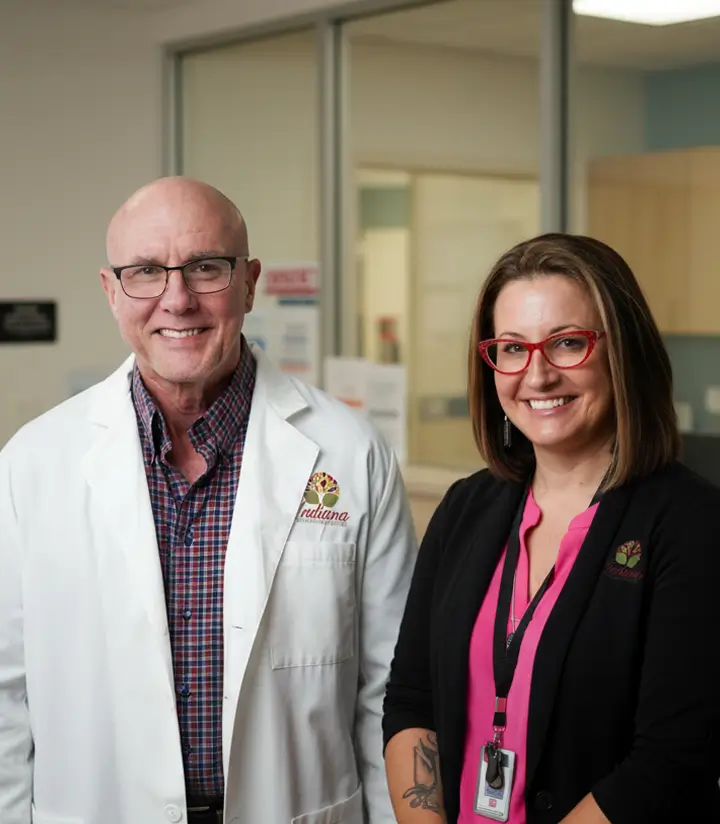Before and After Detox: Embracing a Drug-Free Life
Get a life-changing transformation at Indiana Center for Recovery. Embrace healing before and after detox.
Addiction affects millions of people and their families. It changes how the brain works, making urges feel impossible to resist and leaving many stuck in a cycle they can’t break on their own.
In Indiana, nearly 1 in 5 people aged 12 and older have a substance use disorder. Despite that, only about 1 in 20 receive treatment ⓘ
We’ve gathered helpful resources, along with our blog articles, to offer clarity, comfort, and a place to start.
Addiction, or Substance-Use Disorder (SUD), is a condition that makes people keep using drugs or alcohol, even when it’s causing problems. It changes how the brain works, especially around decision-making, pleasure, and self-control. That’s why quitting can be so hard, even if someone wants to stop.

Below are over 100 articles on the topic of addiction all reviewed by our Chief Medical Officer, Dr. Kane.
Get a life-changing transformation at Indiana Center for Recovery. Embrace healing before and after detox.
Addiction and anxiety are a vicious cycle. Break the cycle with Indiana Center for Recovery.
Heal from PTSD and drug addiction with Indiana Center for Recovery. Get our expert care for lasting transformation.
Discover effective drug rehab programs at Indiana Center for Recovery. Begin your path to healing and wellness today
Learn about the physical effects of PTSD and seek professional help at Indiana Center for Recovery
What is dual diagnosis? Indiana Center for Recovery explains how to cope with a dual diagnosis.
Learn how an inpatient program is beneficial for treating alcoholism with Indiana Center for Recovery.
Can teen vaping set your child up for addiction? Indiana Center for Recovery looks into this growing trend.
Learn the underlying causes and effective treatment of eating disorders in teens with Indiana Center for Recovery.
What is the cause of drug addiction? It’s more complex than you think. Indiana Center for Recovery explains here.
Indiana Center for Recovery provides integrated care tailored to your recovery needs. Our comprehensive services include detox, residential programs, outpatient support, and family programs.
We also have dual diagnosis treatment for individuals with co-occurring mental health disorders.

Error: Contact form not found.

 Get Answers Now
Get Answers NowYou don’t have to figure this out alone. We can guide you through your options—completely confidential and with zero commitment.
100% Private